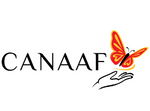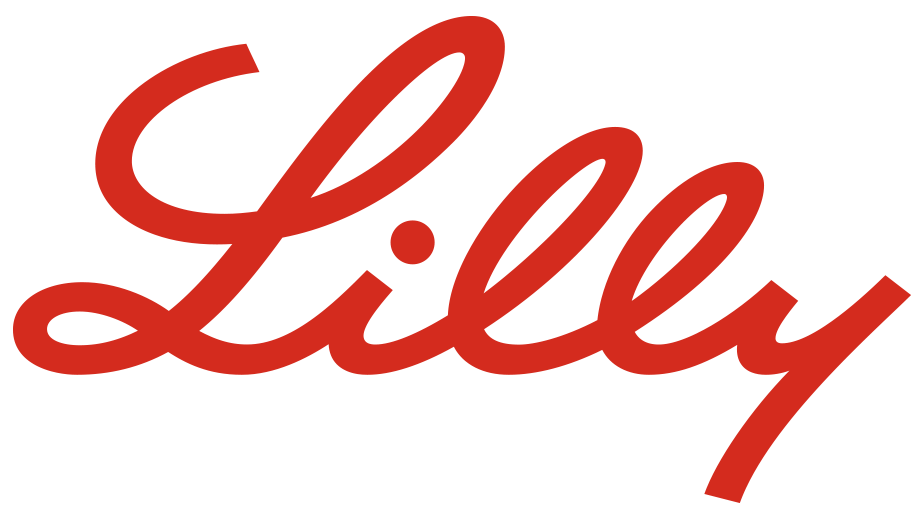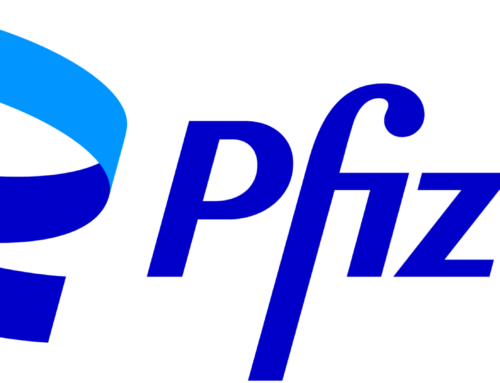This press release was posted on January 30, 2024. En francais.
- 17-22% of patients taking OLUMIANT 2 mg/day and 32-35% of patients taking OLUMIANT 4 mg/day achieved 80% or more scalp hair coverage, compared to 3-5% taking placebo.
- Additionally, 11-13% of patients taking OLUMIANT 2 mg/day and 24-26% of patients taking OLUMIANT 4 mg/day achieved 90% or more hair coverage, compared to 1-4% of patients taking placebo.
- Among patients with substantial eyebrow and eyelash hair loss at baseline, improvements in eyebrow and eyelash coverage were seen for patients taking OLUMIANT 4 mg daily at 36 weeks.
TORONTO, Jan. 30, 2024 /CNW/ – Eli Lilly Canada Inc. announced today that OLUMIANT (baricitinib) received regulatory approval for its severe alopecia areata indication via Notice of Compliance (NOC) from Health Canada. OLUMIANT is taken once daily, as a systemic treatment for adults with severe alopecia areata (AA), as 2 mg or 4 mg tablets orally.1 The recommended dose of OLUMIANT for patients living with severe alopecia areata is 2 mg/day, with an increase to 4 mg/day if treatment response is not adequate. For patients with nearly complete or complete scalp hair loss, with or without substantial eyelash or eyebrow hair loss, a starting dose 4 mg/day may be considered. Once an adequate response is achieved on 4 mg/day, dose reduction to 2 mg/day may be considered.1 OLUMIANT is not recommended for use in combination with other JAK inhibitors, biologic immunomodulators, azathioprine, cyclosporine or other potent immunosuppressants.1
“We are excited by the ground-breaking announcement of a new treatment option for alopecia areata. This development offers a ray of hope to our community members who suffer from the devastating impacts associated with alopecia areata,” said Carolynne Harrison, President of the Canadian Alopecia Areata Foundation (CANAAF). “We eagerly await access to OLUMIANT and look forward to empowered futures for individuals and their families with alopecia areata.”
“The impact of alopecia areata on patients who suffer from the disease is very much underappreciated. There has been a paucity of treatment options for our patients suffering from alopecia areata until now,” said Dr. Perla Lansang, Assistant Professor and Full-Time Staff Dermatologist in the Division of Dermatology, University of Toronto. “It’s truly an exciting time because with the advent of targeted systemic therapeutic modalities such as JAK inhibitors, including baricitinib, we now have treatment options to offer our patients who have been suffering from this disease for so long.”
“There is a significant unmet medical need for people living with alopecia areata in Canada. This disease can have a negative financial, emotional, and psychosocial burden on patients’ daily lives.” said Kenneth Custer, General Manager of Lilly Canada. “Our mission is to make life better for Canadians living with debilitating immune-mediated diseases. We’re excited about this additional approval for OLUMIANT, and the potential difference it can make for adults with severe alopecia areata in Canada.”
About Alopecia Areata (AA)
Alopecia areata is a common autoimmune hair loss disorder. It affects people of all age groups and ethnicities. The disease is unpredictable and can initially present as small, well-defined patches of hair loss on the scalp, to complete loss of scalp and body hair. While the causes of alopecia areata are not fully understood, it is believed to be the result of complex immune signals that change the hair growth cycle, resulting in hair loss. Alopecia areata is a non-scarring alopecia, meaning that the hair follicles are not destroyed, and they are capable of regrowing hair if the autoimmune response is suppressed.3
About the BRAVE-AA1 and BRAVE-AA2 trials
The approval of OLUMIANT (baricitinib) for alopecia areata was based on Lilly’s BRAVE-AA1 and BRAVE-AA2 Phase 3 clinical trials, valuating the efficacy and safety of OLUMIANT in 1,200 adult patients with severe AA (≥50% scalp hair loss as defined by a Severity of Alopecia Tool [SALT] score ≥50).1
The primary endpoint was the proportion of patients achieving SALT ≤20 (i.e., 80% or more scalp hair coverage) at Week 36.1 Across the studies at 36 weeks, 17-22% of patients taking OLUMIANT 2 mg/day and 32-35% of patients taking OLUMIANT 4 mg/day achieved 80% or more scalp hair coverage, compared to 3-5% taking placebo.1 Additionally, 11-13% of patients taking OLUMIANT 2 mg/day and 24-26% of patients taking OLUMIANT 4 mg/day achieved 90% or more hair coverage, compared to 1-4% of patients taking placebo; SALT ≤10 (90% or more scalp hair coverage) result for OLUMIANT 2 mg/day was not statistically significant under the multiplicity control testing plan for BRAVE-AA2.1 Among patients with substantial eyebrow and eyelash hair loss at baseline, improvements in eyebrow and eyelash coverage were seen for patients taking OLUMIANT 4 mg daily at 36 weeks.1
The BRAVE-AA clinical program also evaluated the safety profile of OLUMIANT.1 The most common adverse events in the baricitinib-exposed patients up to 36 weeks, reported by >2% of patients and at a higher incidence versus placebo, were as follows: upper respiratory tract infection, nasopharyngitis, headache, acne, increased blood creatine phosphokinase (CPK, blood marker related to the muscle), urinary tract infection, hypertension, pruritus (itching), fatigue and folliculitis (inflammation of hair follicles).1
Safety Warning
The Health Canada-approved labeling for OLUMIANT includes a boxed serious warnings and precautions for risk of serious infections that may lead to hospitalization or death, malignancy, major adverse cardiovascular events (MACE) and thrombosis.1 OLUMIANT has a well-characterized safety profile that we are confident in for the treatment of adults with severe AA.
For important safety information, please consult the OLUMIANT Product Monograph.
About OLUMIANT
OLUMIANT, a once-daily oral medication, was discovered by Incyte and licensed to Lilly. In December 2009, Lilly and Incyte announced an exclusive worldwide license and collaboration agreement for the development and commercialization of OLUMIANT and certain follow-on compounds for patients with inflammatory and autoimmune diseases. It is also approved in more than 75 countries as a treatment for adults with moderate to severe rheumatoid arthritis, as well as for other indications in certain geographies, and has been used with more than 1.7 million patients worldwide.
OLUMIANT is believed to interfere with the activity of enzymes called Janus kinases (JAK). Normally JAK enzymes help turn on the immune system when it is needed. However, the overactive immune system can cause inflammation. There are four known JAK enzymes: JAK1, JAK2, JAK3 and TYK2. JAK-dependent cytokines have been implicated in the pathogenesis of a number of inflammatory and autoimmune diseases, including alopecia areata. OLUMIANT has greater inhibitory potency at JAK1, JAK2 and TYK2 relative to JAK3; however, the relevance of inhibition of specific JAK enzymes to therapeutic effectiveness is not currently known.
In alopecia areata, OLUMIANT works by reducing the activity of JAK enzymes, which are involved in inflammation. By reducing the activity of JAK enzymes, OLUMIANT helps hair to regrow on scalp, in eyebrows, and in eyelashes impacted by alopecia areata.
About Lilly Canada
Eli Lilly and Company is a global healthcare leader that unites caring with discovery to make life better for people around the world. We were founded more than a century ago by Colonel Eli Lilly, who was committed to creating high quality medicines that meet people’s needs, and today we remain true to that mission in all our work. Lilly employees work to discover and bring life-changing medicines to people who need them, improve the understanding and management of disease, and contribute to our communities through philanthropy and volunteerism.
Eli Lilly Canada was established in 1938, the result of a research collaboration with scientists at the University of Toronto which eventually produced the world’s first commercially available insulin. Our work focuses on oncology, diabetes, autoimmunity, neurodegeneration, and pain. To learn more about Lilly Canada, please visit us at www.lilly.ca or connect with us on LinkedIn..
OLUMIANT is a registered trademark owned or licensed to Eli Lilly and Company, its subsidiaries, or affiliates.
References:
- OLUMIANT® Product Monograph, Eli Lilly Canada Inc., January 26, 2024
- Gilding A, Ho N, Pope E, Sibbald C. The Burden of Disease in Alopecia Areata: Canadian Online Survey of Patients and Caregivers. JMIR Dermatol 2022;5(4):e39167.URL: https://derma.jmir.org/2022/4/e39167 DOI: 10.2196/39167
- The Canadian Alopecia Areata Foundation (CANAAF) (2002). What is Alopecia Areata? Retrieved January 2024 from: https://www.canaaf.org/about-alopecia-areata/
SOURCE Eli Lilly Canada Inc.
For further information: Media Contact: Jason Haug, Eli Lilly Canada, jason.haug@lilly.com, (647) 529-3689






